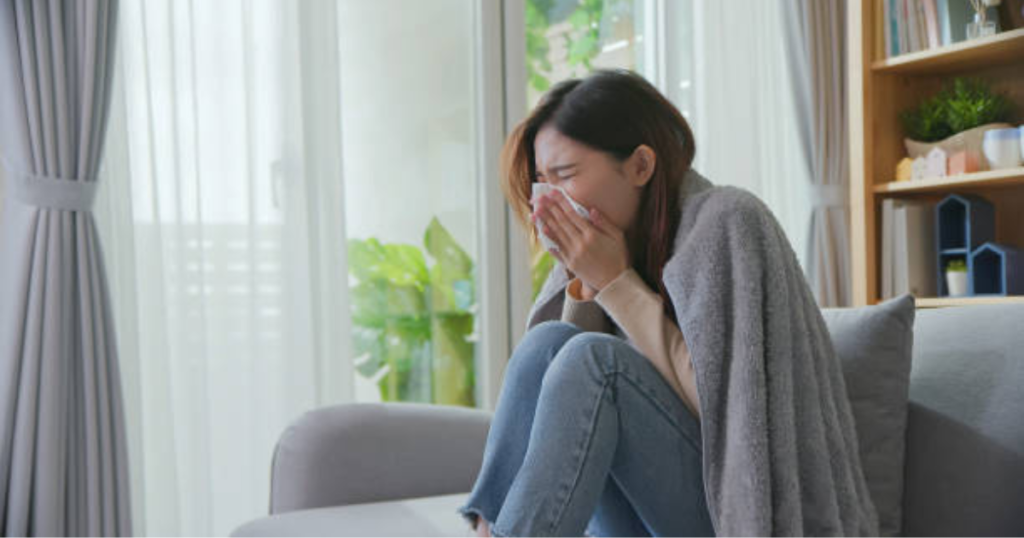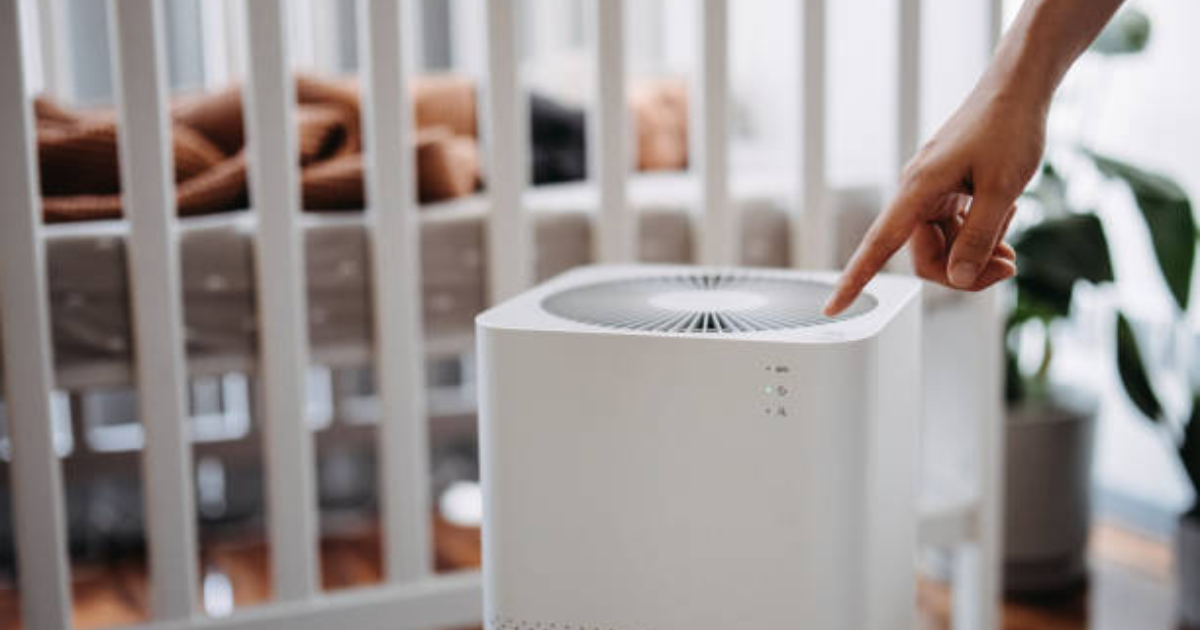In recent years, scientific studies have revealed that the indoor air quality of your home can be more polluted than outdoor air. Polluted air, whether inside or outside, can lead to a wide variety of health issues. With the vast majority of individuals spending 90% of their time indoors, being exposed to poor indoor air quality can cause a lot of issues.
To improve the indoor air quality in your home, consider purchasing an air purifier. Of course, before making the investment, you want to ensure that the air purifier you buy will actually work to clean your indoor air. Let’s go over and discuss whether a portable air filtration system will truly improve your indoor air quality or not.
Can a Portable Air Purifier Really Improve Indoor Air Quality?
The short answer? Yes! An air purifier will improve your indoor air quality. The long answer is that you have to get the right air purifier and you can’t expect the unit to clean the air entirely on its own. Pollutants such as mold spores, dust, pollen, animal dander, and volatile organic compounds could all be floating around in your home, and they can have an impact on your health.
In addition, if anyone in your home smokes tobacco products, or if you live near a busy street, both the exhaust and the smoke can impact your indoor air quality and health. Removing these harmful particles from the air is the main job of an air purifier, but it can be made easier with the right air filter. You also have to be willing to keep up with regular cleaning, as this is necessary to reduce the contaminants that might be floating around in your air.
How Do Air Purifiers Work?
Air purifiers come in a wide range of sizes and capabilities. Typically, they are used to clean the air in one room of your home. Once you place a unit in a room it will get straight to work by pulling in the surrounding air and pushing it back out through a filter, creating an air cycle. The filter is in place to trap the wide range of particles mentioned earlier, such as dust, pollen, and others. Not all filters are created the same. They come with their own capabilities and remove a range of contaminants from the air.
If you are considering adding an air purifier to your home, then you probably want it to reduce the number of contaminants that are floating around. To make sure your unit will work effectively, check the rating of the filter that is used in the air purifier.
High Efficiency Particulate Air filters, also known as HEPA, are common in air purifiers these days.This term is commonly used throughout the industry to show how effective the filter is at removing pollutants. These filters are incredibly beneficial if you suffer from allergies and are looking to remove as many particles from your indoor air as possible. They can take care of more than 99% of contaminants, including dust, smoke, pet dander,, pollen, bacteria, and some viruses.
True HEPA filters are a great choice when it comes to improving your indoor air quality.
Other Things to Consider
In addition to getting an air purifier with the right filter, you should know that it may not be able to remove odors from your home.
If you are looking for a way to get rid of unpleasant odors in your home, along with the contaminants, look for an air purifier that contains an activated carbon filter. An activated carbon filter helps absorb odors from a wide range of sources, including tobacco smoke, cooking smells, pets, and volatile organic compounds (VOCs).
Reasons to Have an Air Purifier
If you or a family member currently suffer from allergies or asthma, it’s crucial to remove as many trigger particles from the surrounding air as possible. Since air purifiers trap common trigger particles such as pollen, dust, and mold spores, they can alleviate asthma symptoms while in your home. This gives you or your loved ones some much-needed relief from breathing issues, itchy or watery eyes, sneezing, and a runny nose.

Keep in mind that an air purifier shouldn’t be the only defense against asthma and allergy symptoms. Just because it can help reduce these symptoms doesn’t mean you should stop taking your required medication. These items need to work together to provide the greatest benefits to your health.
Should you decide to add an air purifier to your home, you might be considering one that’s portable. This allows you to move it from one room to another. Wherever you and your family are in your home, whether that be in the living room or in the basement, you can enjoy the benefits of cleaner, fresher air.
How to Get the Most Out of Your Air Purifier
An air purifier with the right filter can be incredibly helpful at improving the indoor air quality in your home. However, it needs some help.
Since the unit can only remove contaminants that are in the air, you may still find that particles are trapped in your upholstery or in the carpet. They may also settle on other surfaces, such as shelves, coffee tables, and walls.
To ensure that your indoor air is as clean as possible and your air purifier is working optimally, you need to give it assistance. This includes doing the following:
- Vacuum on a regular basis – at least once a week. You may want to vacuum more frequently if pets are present or if you live in a dusty area.
- Dust other surfaces regularly as well.
- Wash your bedding weekly.
- Bathe or brush your pets frequently to reduce the amount of dander in your home.
- Change your air filters on a regular basis. Typically, you should change these at least every 90 days.
The Right Filter Makes All the Difference
Having clean air in your home is important for you and your family’s health. If you’ve already been considering purchasing a portable air purifier, this could be a good way to remove contaminants from the air inside your home.
To ensure it’s doing its job optimally, you need to have the right filter. At Discount Filters, we offer a wide range of products to improve your indoor air quality. Whether you are looking for a purifier with HEPA filtration or even replacement filters for your existing air purifier, we have you covered!
Other Frequently Asked Questions
Where should I put my air purifier?
Air purifiers work by circulating air, and they need space to do it. Place your air purifier at least 6 inches away from walls, doors, or furniture. Running the device in tight spaces with other items nearby reduces the amount of airflow the purifier can generate with its intake fan.
Is it OK to sleep in a room with an air purifier?
Air pollution does not stop when we sleep, so the simple answer is yes. To experience the full benefits of your air purifier, you should have it on and running in your bedroom when you sleep. Some people also prefer the constant “white noise” generated by the air purifier, though many can run next to whisper quiet if preferred.
Is it better to have one large air purifier or multiple small ones?
In many cases, one air purifier is sufficient for a single room as long as it’s rated to cover the square footage of that room. In cases of a large rooms or rooms with ceilings higher than 8 ft.1, you may want to consider having more than one air purifier due to larger square (or cubic) footage.
Should air purifiers be left on all the time?
Yes! It’s perfectly safe to keep your air purifier running continuously – the amount of energy it consumes is very small. Plus, the advantages are significant. By having your air purifier run all the time, you benefit from the best air quality possible. The cleaner the air, the better your health!

